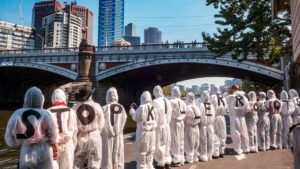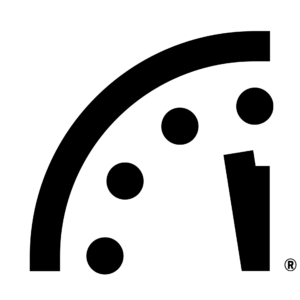On Monday November 21 I attended the ICAN roundtable focusing on the banning of nuclear weapons by Pacific Islands nations. In addition to those of us physically present a number of people joined the meeting via Skype, enabling representation from the Marshall islands, Indonesia, Fiji and New Zealand. In this meeting we received an ICAN campaign update and updates from partners in the Pacific Islands who gave their perspectives.
There have been 350 nuclear tests over the last 50 years with the last carried out by North Korea this year. The use of nuclear weapons has certainly not been relegated to history.
The Pacific is vital in working towards a ban for a number of reasons:
- remains to be seen of course as to whether all of these countries can maintain their strong stance in the face of what is sure to be concerted lobbying by nuclear nations and their supporters.
- The South Pacific Nuclear Free Zone treaty outlines important principles which could be helpful in the drafting of a nuclear weapons ban. http://www.nti.org/learn/treaties-and-regimes/south-pacific-nuclear-free-zone-spnfz-treaty-rarotonga/
- The Pacific has experienced first-hand the consequences of nuclear testing carried out by the US, France and Britain.
On 7 October 2017 at a meeting of the First Committee of the UN General Assembly, which deals with disarmament and international security matters, 123 nations voted in favour of resolution L 41, ‘Taking Forward Multilateral Nuclear Disarmament Negotiations’, with 38 against and 16 abstaining. This opens the way for negotiations for a legally-binding treaty to ban nuclear weapons. http://www.icanw.org/campaign-news/un-votes-to-outlaw-nuclear-weapons-in-2017/
This historic decision provides an unprecedented opportunity. Unfortunate to say, Australia did not only fail to support this decision, but actively worked against it.
There will be two follow-up UN meetings next year. In March there will be a meeting to set up the procedures and in June-July there will be a meeting to carry out the negotiations for a legally-binding treaty to ban nuclear weapons. Both meetings will be held in New York.
Pacific island nations have so far played an important role in ban negotiations and the Government of New Zealand was one of the sponsors of resolution L41.
Australia risks being left on the wrong side of history and lagging behind other Pacific nations at this historic time if our government continues with its negative stance. When in Opposition, both the Labor Party and the Liberal Party supported moves towards a nuclear weapons ban. Sadly, this has not so far been reflected in policy when in government.
In the period from now to June 2017, there is an opportunity in which SafeGround members and supporters could play an important role in lobbying Federal politicians. Our government will no doubt also face concerted lobbying from nuclear states and we must be ready to counteract such pressure.
For more information go to: http://www.icanw.org/au/


